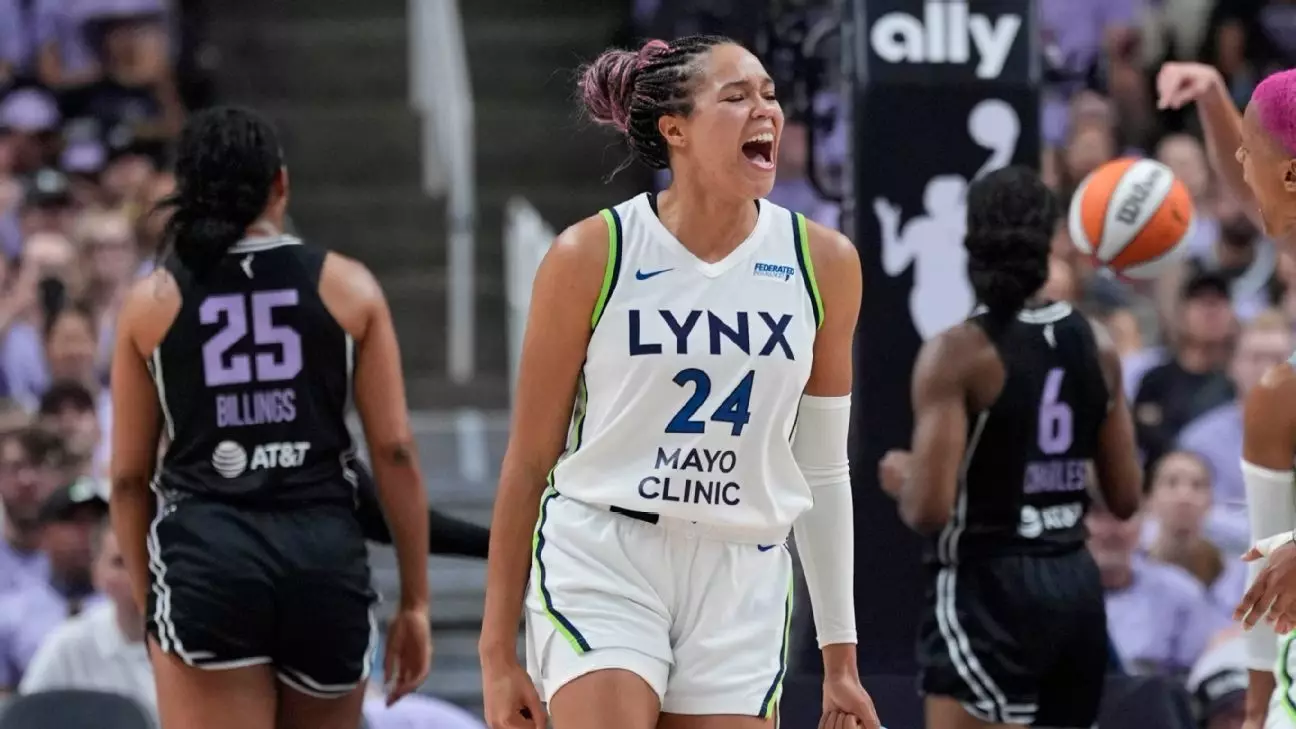In the landscape of professional sports, narratives often glorify resilience—stories of teams pushing through adversity to achieve glory. However, a closer examination of recent events exposes a troubling complacency around the idea that grit alone can compensate for strategic shortcomings. The Minnesota Lynx’s dramatic comeback against the Golden State Valkyries, for instance, paints a picture of unyielding determination; yet, it also underscores a fundamental flaw in how we interpret resilience. Is it truly commendable to rely on sheer effort after being statistically eliminated countless times? Or does it reveal a systemic failure to prepare adequately for the inevitable downturns that come with high-stakes competition?
The Lynx’s victory, while celebrated as triumph over adversity, should prompt us to question the overemphasis on perseverance without strategic foresight. A team’s success cannot solely depend on playing harder when the chips are down but must evolve through smarter, more calculated decisions from the outset. Resilience must be complemented with tactical efficiency—otherwise, it risks degenerating into a desperate gamble that can’t sustain prolonged success.
The Illusion of Heroic Comebacks
The recent game’s narrative construction—highlighting a 14-point deficit overturned in the final quarter—serves to romanticize a seemingly heroic effort. Yet, this dramatization obscures the underlying issue: the tendency to interpret late-surges as proof of a team’s invincibility when, often, they reflect managerial failures or a lack of initial strategic planning. In truth, the Lynx’s sudden surge is not solely an example of courage but a manifestation of the systemic failure to maintain consistency throughout the game.
This phenomenon reveals an uncomfortable truth: in many cases, teams build their reputation on moments that could have been avoided altogether. Instead of proactive game planning, they rely on emotional resilience to scramble back from the brink. Such a mindset is inherently flawed because it rewards reactive rather than proactive strategies, fostering a culture that valorizes comeback moments over sustained excellence.
Strategic Shortcomings and the Cost of Overreliance on Effort
As the game progressed, one thing became glaringly clear: Minnesota’s victory was driven by a burst of defensive intensity and opportunistic offense during the last quarter—attributes that cannot be solely attributed to effort. These elements reflect better tactical choices and mental toughness that emerge under pressure. However, the game’s narrative risks falsely attributing victory to effort when, in reality, the margin of success could have been minimized or avoided with better planning.
This raises a troubling question: are teams too fixated on redeeming their mistakes through sheer effort rather than refining their strategies? Too often, coaches and players fall into the trap of thinking that “playing hard” will cover for tactical errors or poor preparation. This mindset fosters a fragile form of resilience—one that can shatter at the slightest misstep, exposing the hollowness of victory based solely on effort.
The Double-Edged Sword of Emotional Intensity
One cannot overlook the emotional dimension underpinning moments like the Lynx’s comeback. The psychological boost associated with pulling off a seemingly impossible feat fuels broader narratives about mental toughness. While important, emotional intensity can also be a double-edged sword. Over-reliance on raw emotion risks inclining teams toward reckless decisions, especially under stress.
In the case of the Lynx, the desperation to avoid elimination seemed to elevate their performance but also temporarily blinds them to the necessity of calculated, strategic play. This emotional rollercoaster, while exhilarating, underscores the need for a balanced approach—where mental resilience complements, rather than replaces, sound tactics. Ignoring this balance can lead to burnout or impulsive decisions that jeopardize long-term success.
A Call for a More Thoughtful Approach to Playoff Success
The broader lesson from this series is that resilience, while admirable, should not be mistaken for sustainability. Success in postseason play demands more than exceptional effort in crunch moments; it requires the integration of tactical discipline, strategic preparation, and mental fortitude. Teams that cultivate these qualities are better positioned to navigate the unpredictable storms of high-stakes tournaments.
Moreover, the media’s romanticization of comeback stories often distracts from the imperative of consistent performance and strategic innovation. Celebrating moments of last-minute heroism over sustained excellence fosters a dangerous misconception—that resilience alone can carry the day. Instead, organizations must prioritize developing holistic approaches that blend grit with intelligence, patience with assertiveness.
In a league that increasingly demands nuanced skill and mental agility, the focus must shift away from glorifying heroism and towards fostering a culture of strategic mastery. Only then can teams transcend the fleeting glory of miraculous comebacks and build lasting legacies rooted in preparedness, resilience, and intelligence.


Leave a Reply